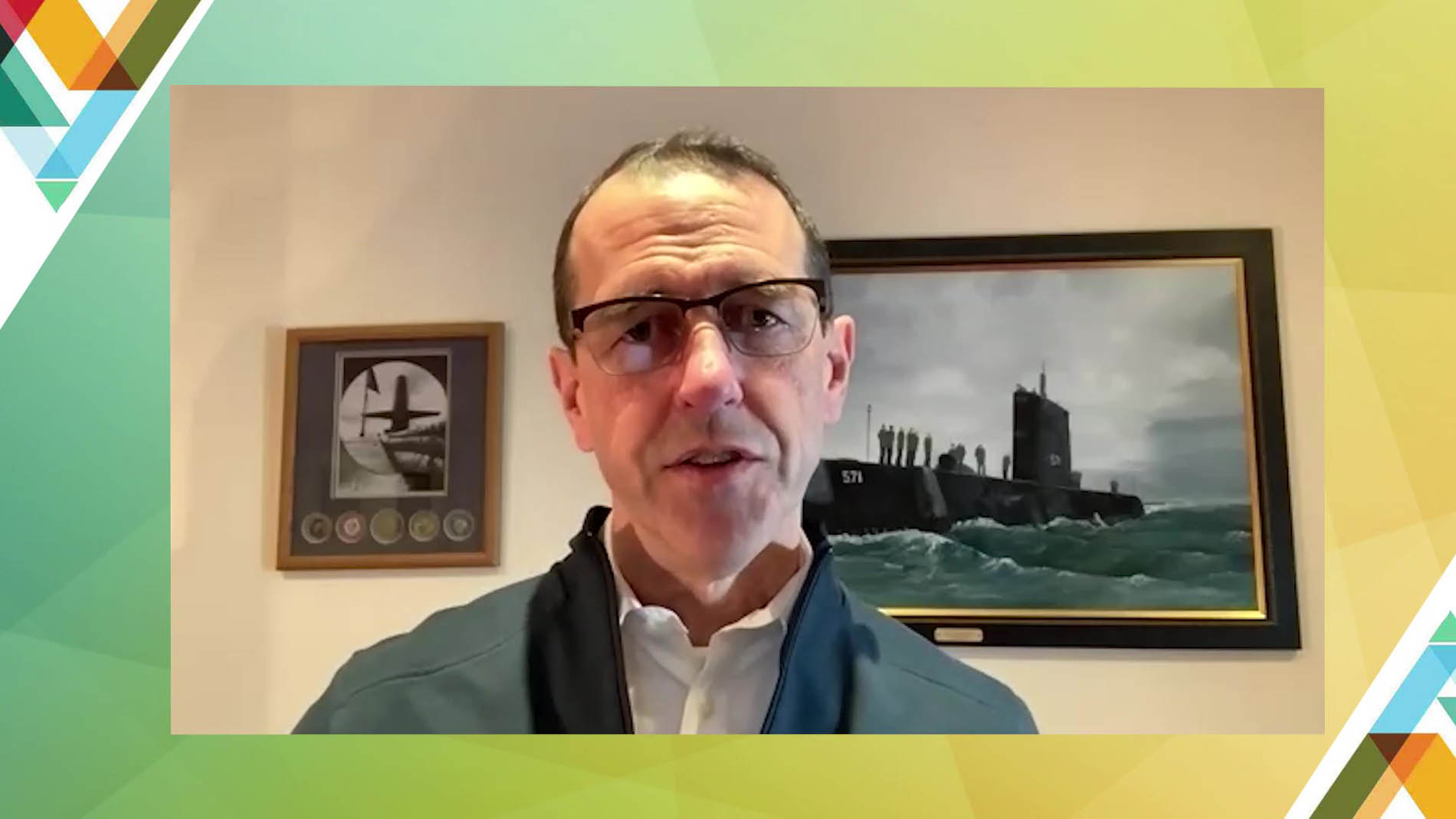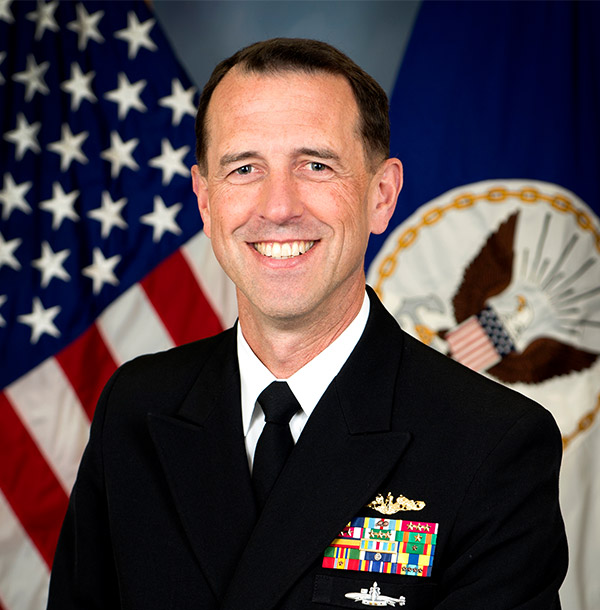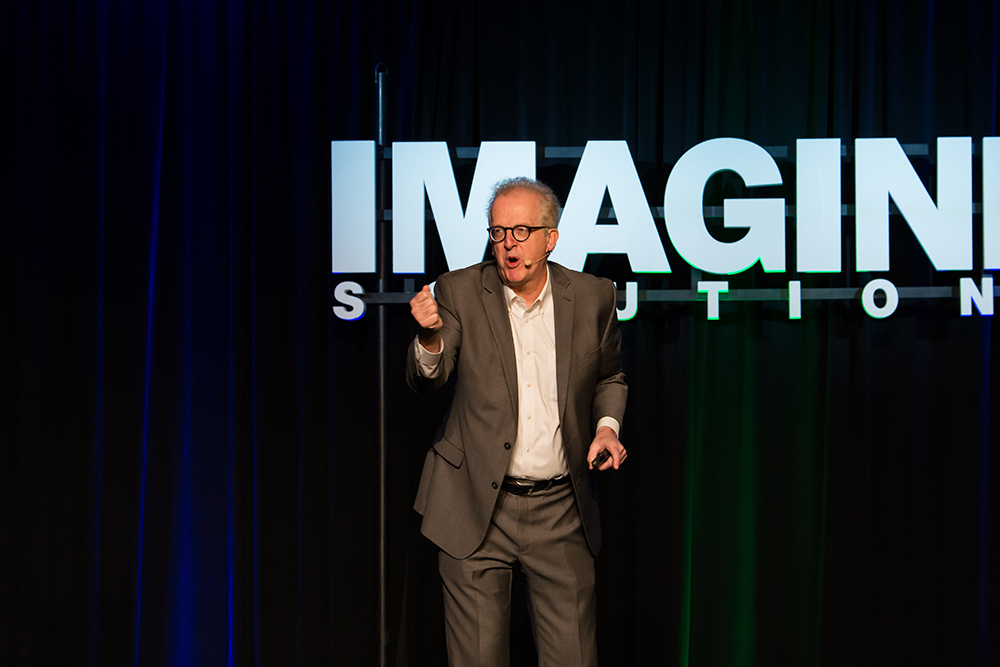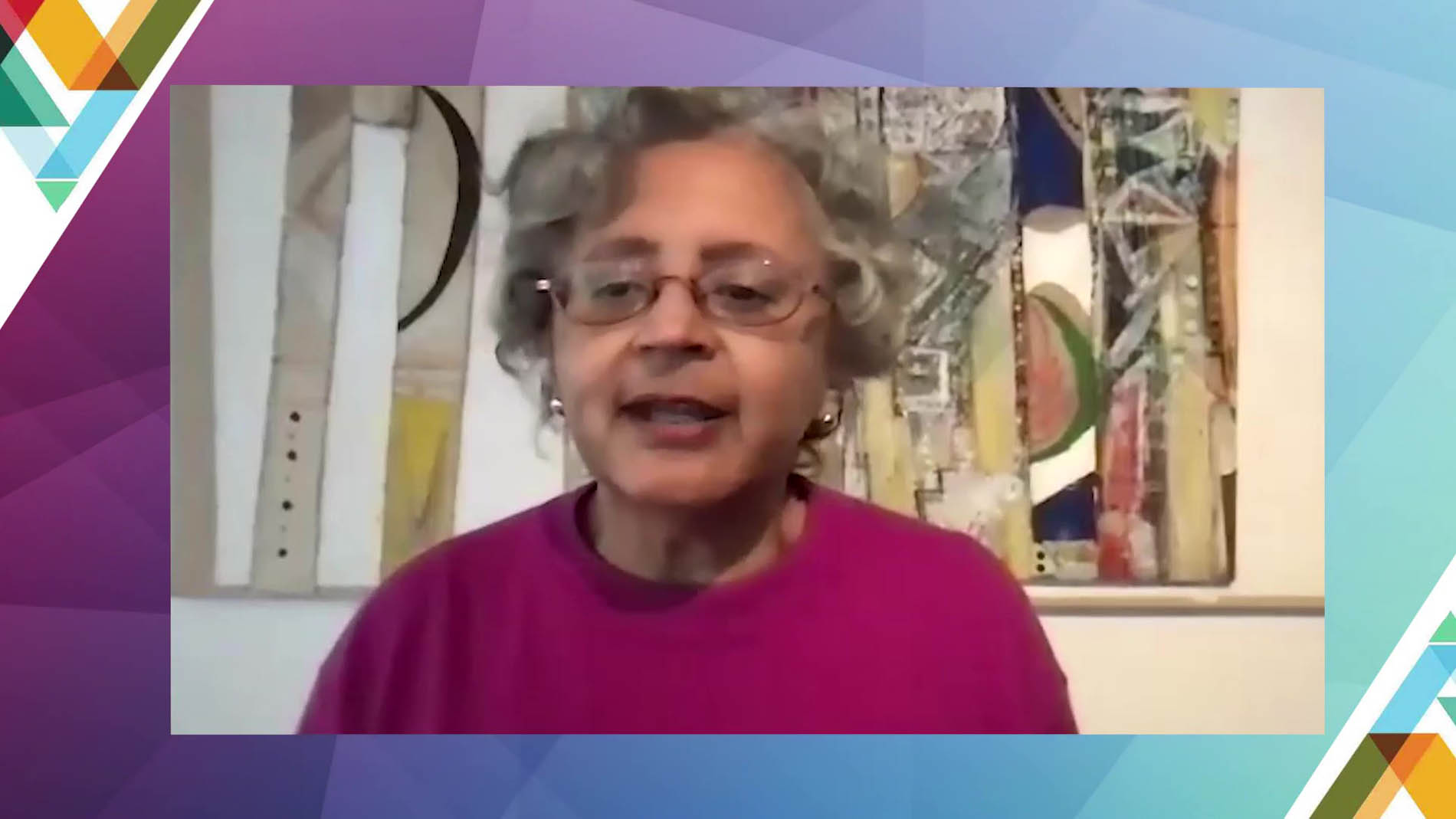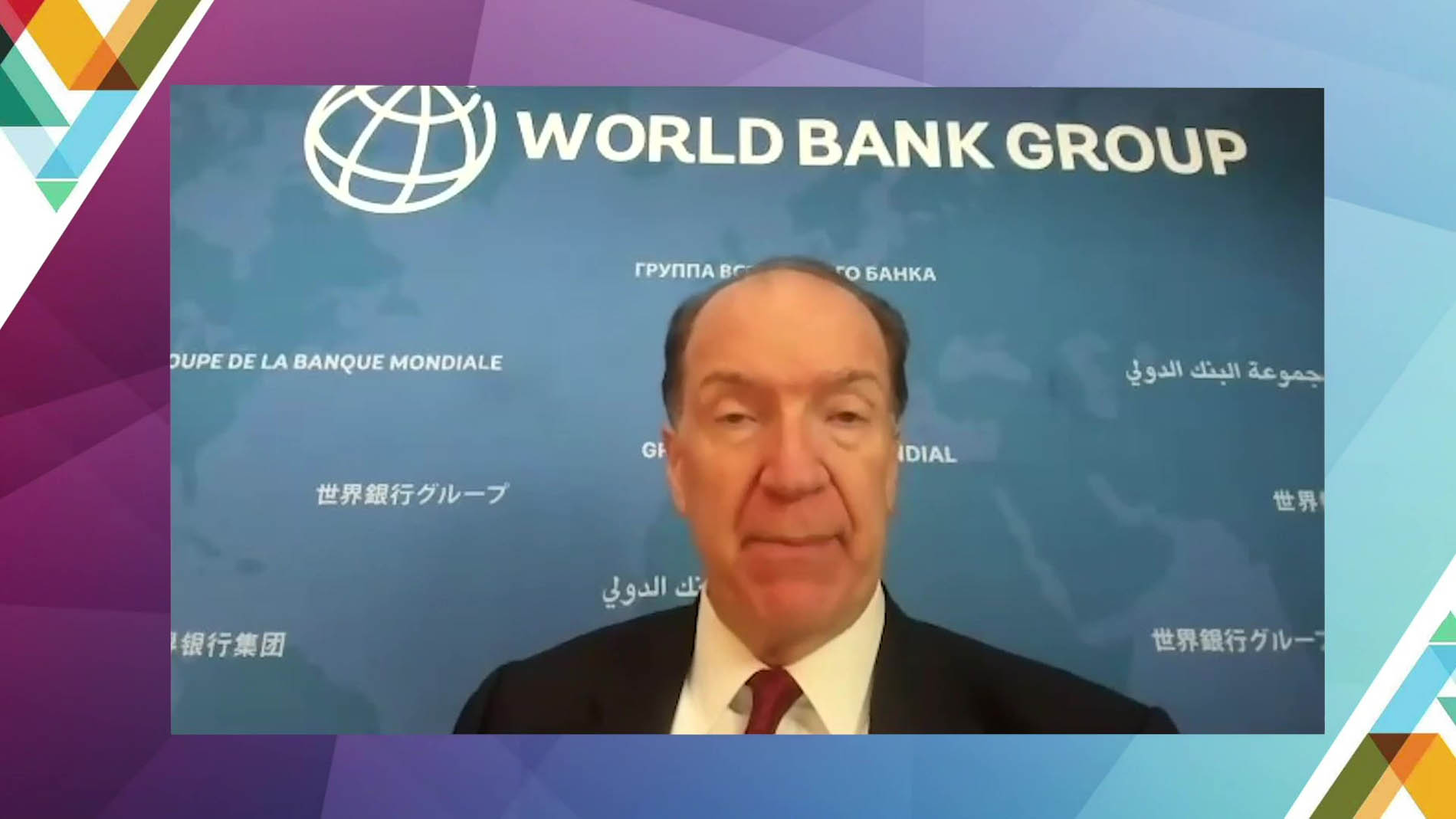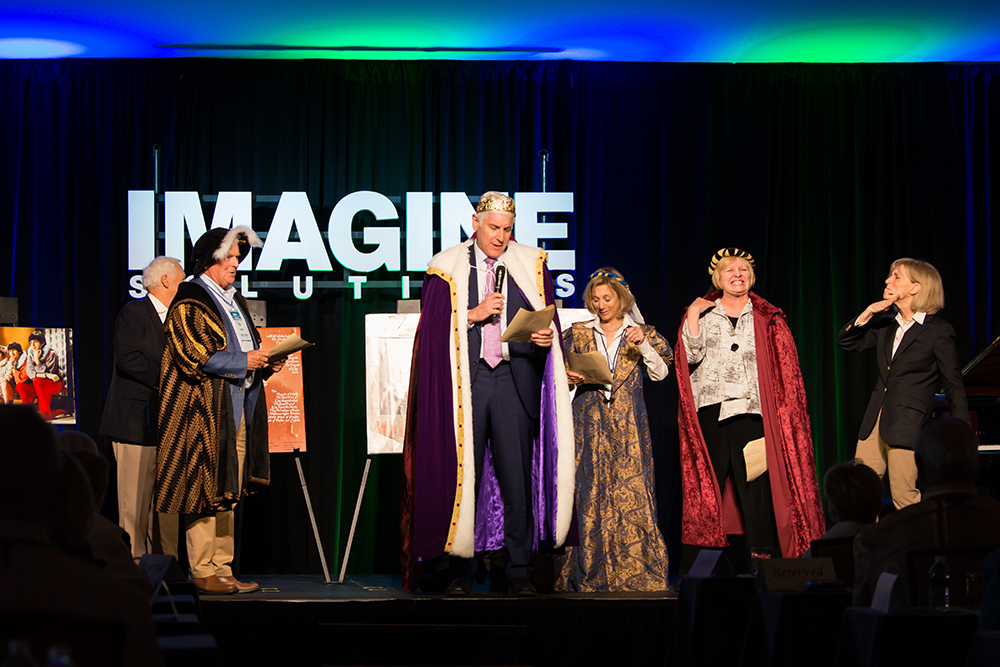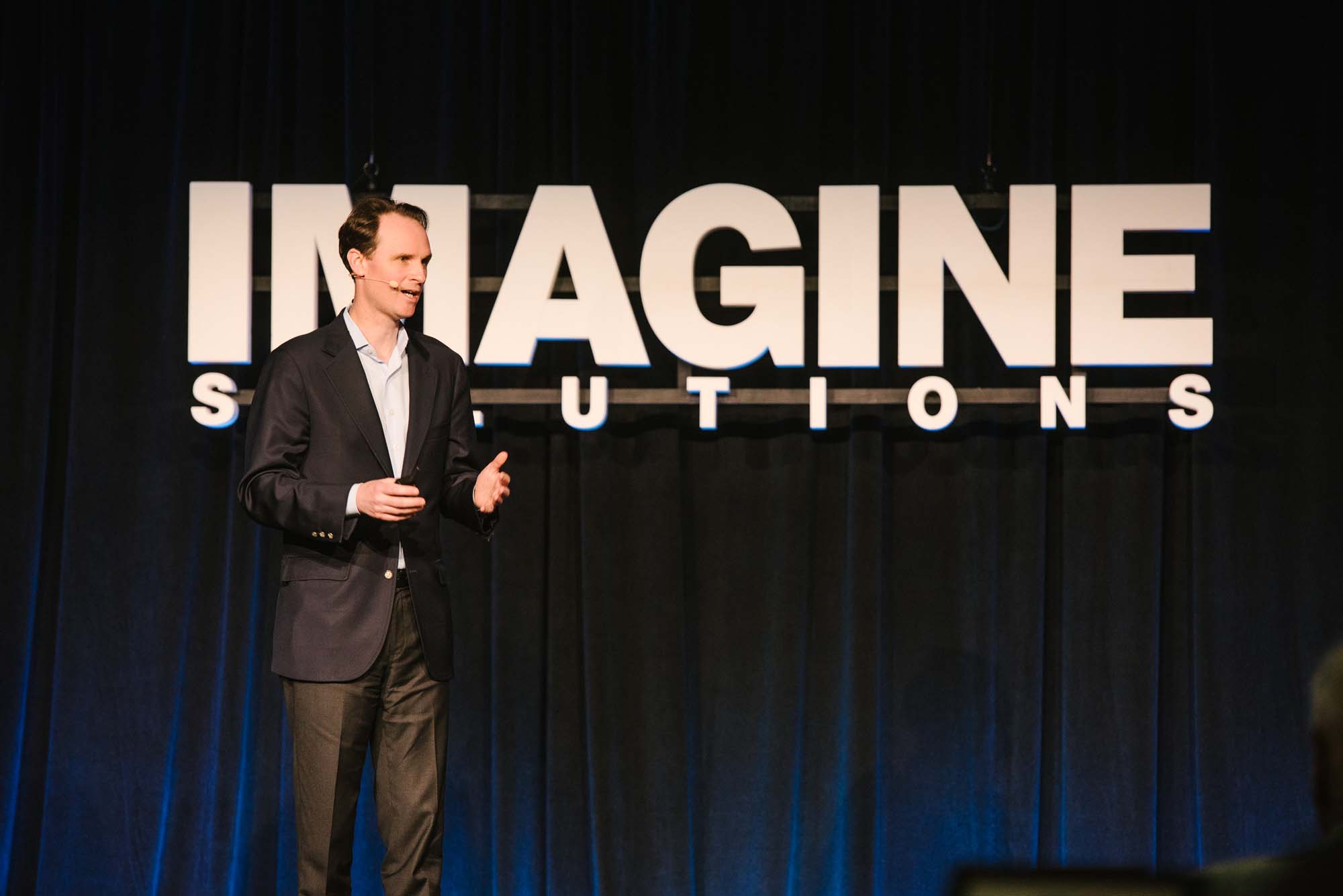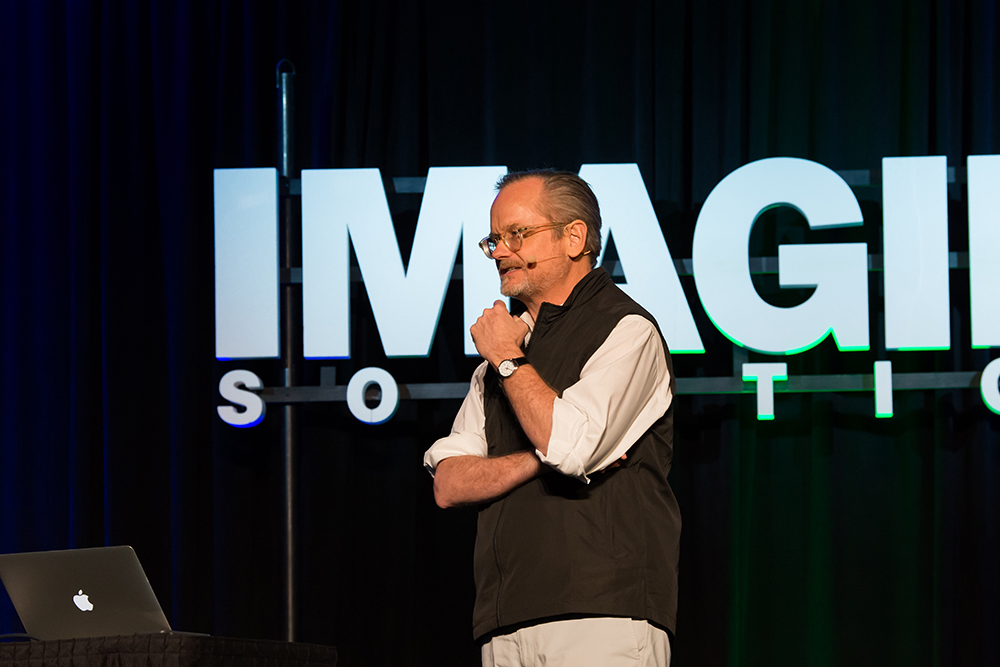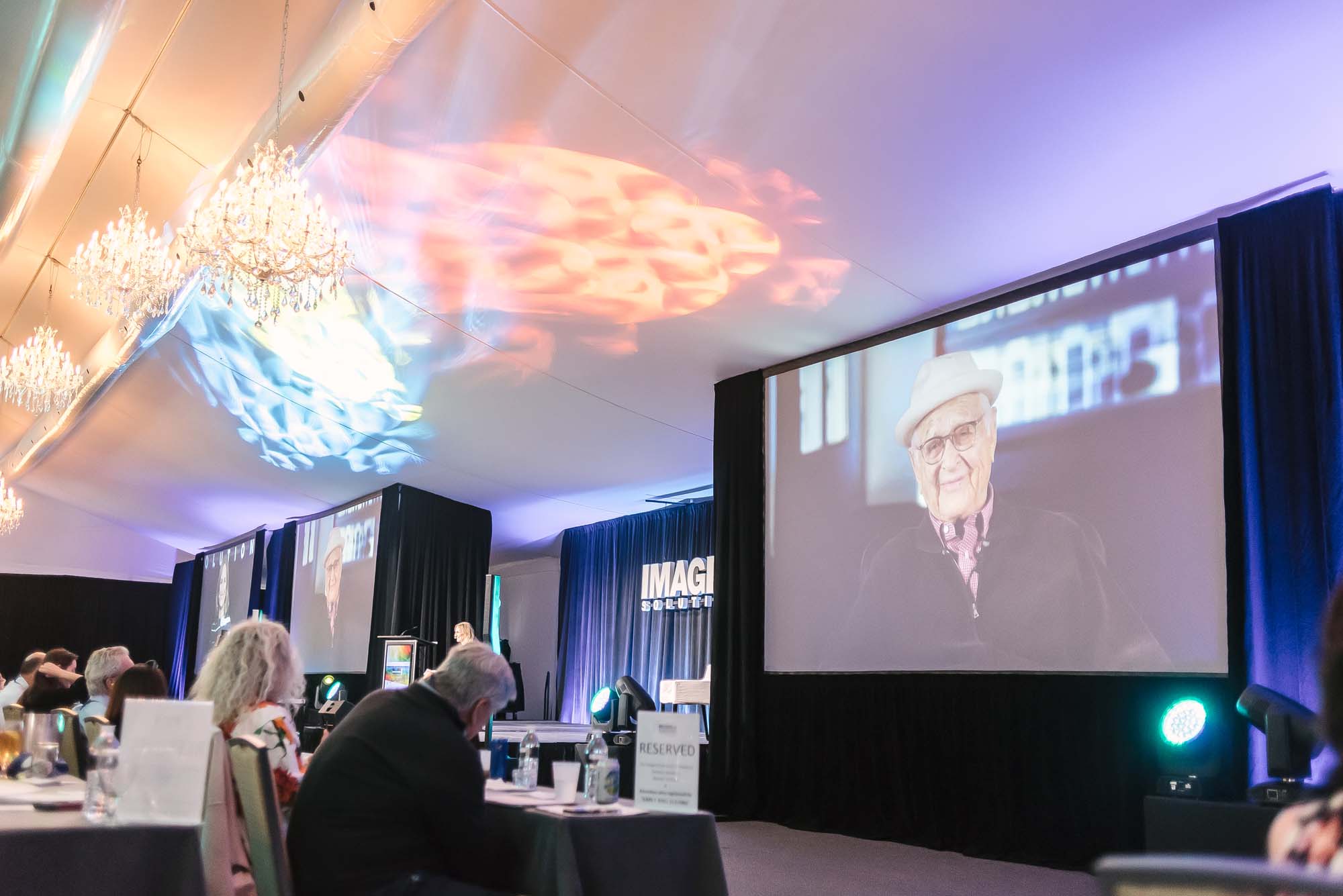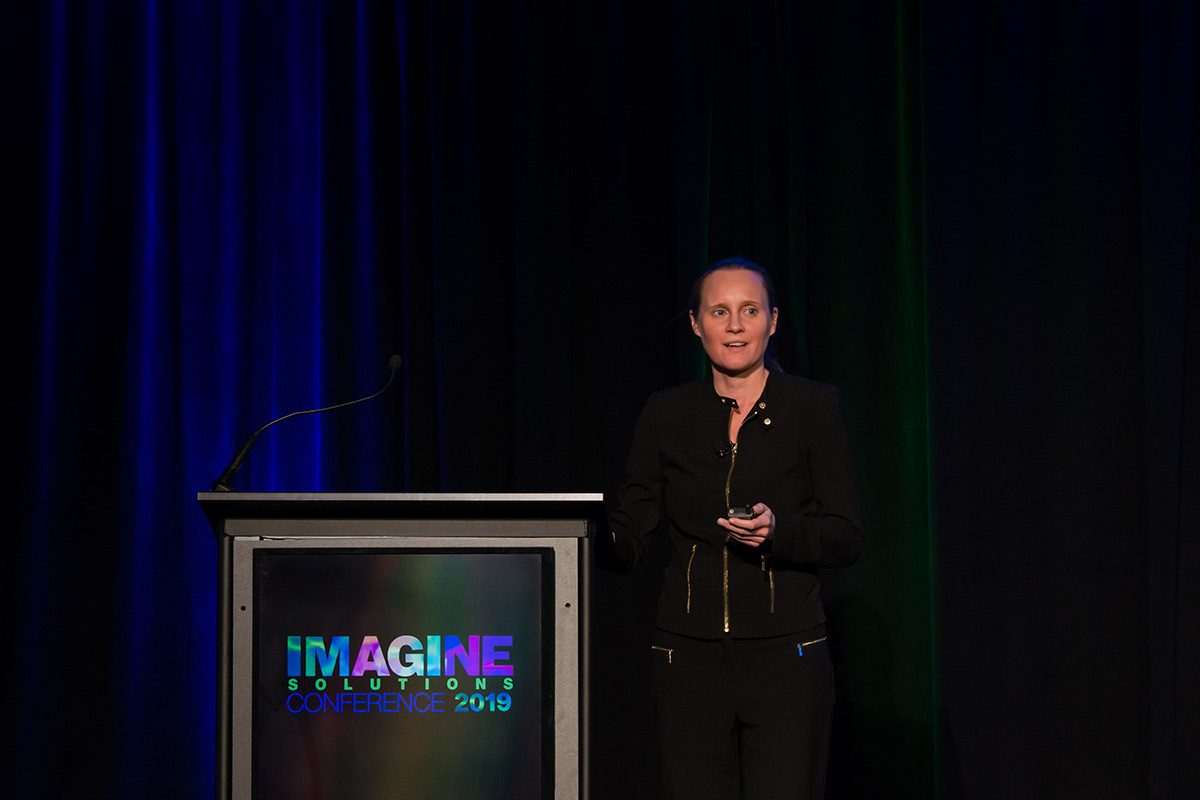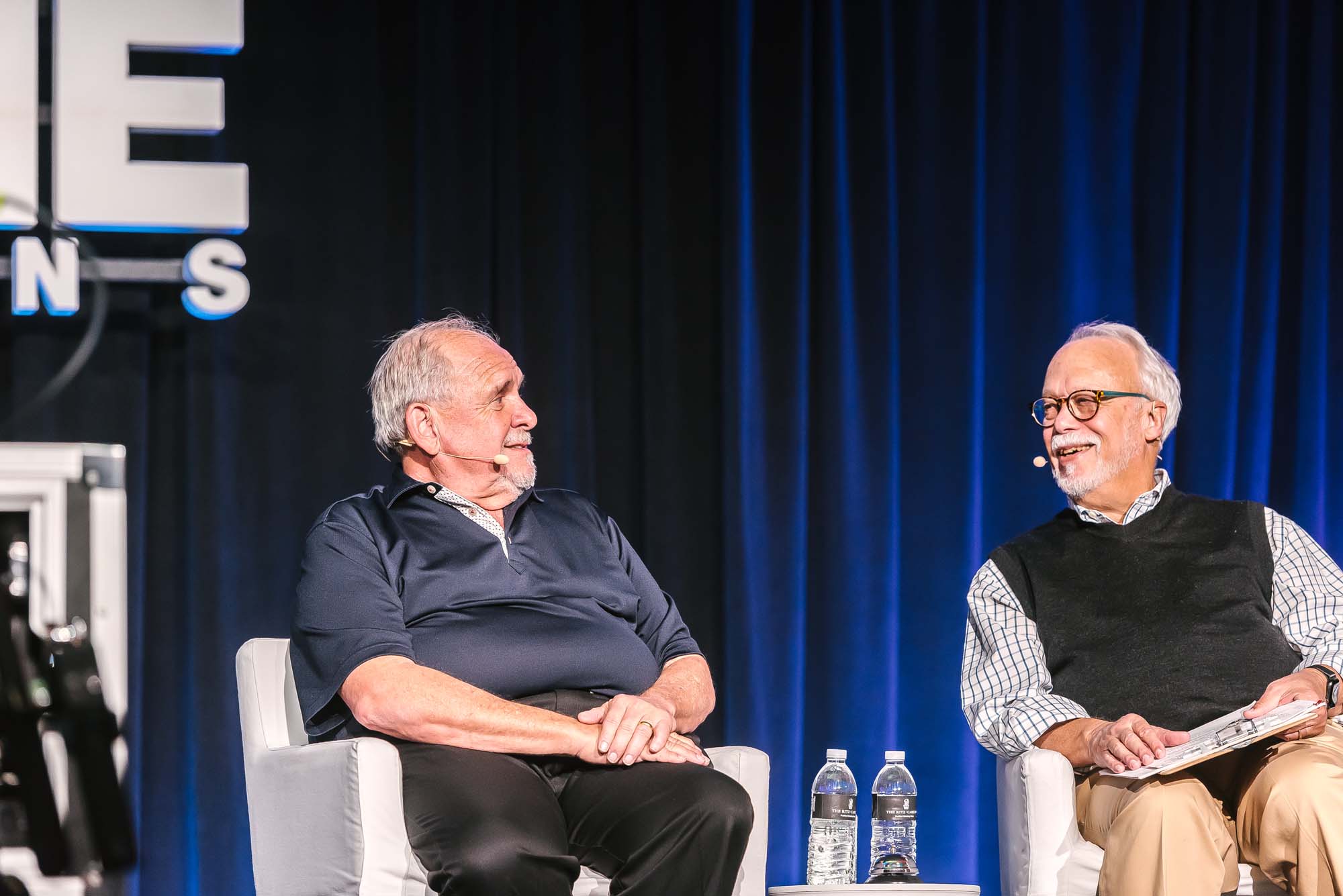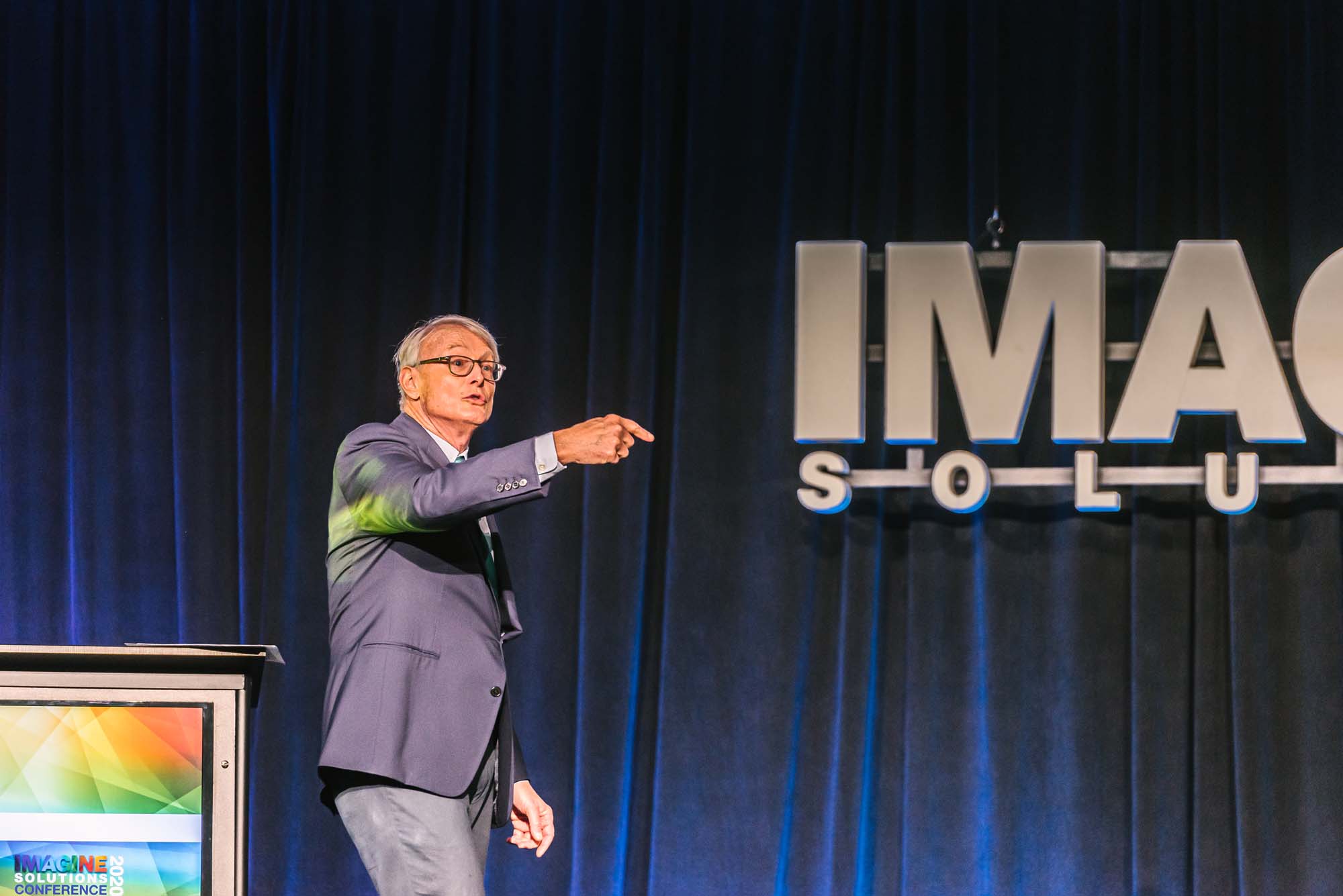Leadership for the Future
Thoughts and insights of Leadership in these changing times as we address our future
00.00
admiral john richardson knows a thing or two about leadership you have to when you become the chief of naval operations in charge of some 330 thousand active duty personnel he has a deep understanding of modern conflict and how it is changing less guns and ships and more cyber since he retired last year he's joined the boards of boeing exelon and bwxt please welcome admiral john richardson to our stage hello everybody i'm admiral john richardson and uh first let me say what a pleasure it is to be here to be able to be part of the imagine solutions conference and share some some time and some thoughts with you and i've got to say i wish with every molecule in my body that we could be together that we could be in each other's company that we could kind of rub antenna uh but you know times are what they are this is our situation right now and so we'll do the very best that we can and i'm also mindful that the great
01.00
communicator president reagan said that you could convey just about any thought in about 10 minutes and so i'll i'll do my very best not to test that limit to too badly and i've got to say right up front also that uh randy and i had coordinated on a talk a topic for a talk that uh had something to do with you know another grave threat to us right now uh cyber security and we could spend an entire conference talking about the threats of cyber security and we've seen that uh displayed vividly but it just seems like you know the events of january 6th in particular and uh the storming of the capital uh you know those have given us all reasons to pause uh and and present to us a situation that is perhaps even more urgent than even the threat of cyber security in fact as i was putting my thoughts
02.00
together it seemed just a little bit tone deaf to talk about something so technical in the immediate wake of this you know great uh almost constitutional political social crisis that's facing us and so uh i literally threw some thoughts together and uh want to share those with you uh just you know my inst my my reactions of the situation over the last few weeks the last few months really kind of the last year as much as anything uh we all feel the a tremendous amount of you know what i've called ambient anxiety in the air you know for a number of reasons there are a number of contributions to this you know first uh there is this you know stark political polarization right and uh you know we've seen that acted out in just vivid and grotesque detail here
03.01
on january 6 with the storming of the capital and it's been going on for long enough really that uh that political polarization has really bled into a social polarization you know i've got to say that uh i've had conversations with people who i have a long term friendship with and if you find yourself for some reason on the other side of the political spectrum you know whereas before you could have a friendly civil conversation you know now it gets to be you know very tense and and uh and sometimes even uh violent towards the end and uh this polarization has made it really uh near impossible to do anything significant uh and contributes to this anxiety and then of course there's the pandemic right i mean many of our people are suffering greatly either directly
04.03
through uh actually catching uh covid19 or they've had a relative that has caught it uh you know many many people in our country have lost loved ones by virtue of this pandemic and those of us who are trying to get through it as best we can you know have found ourselves you know the measures that we're taking are sometimes extreme and it's gone on longer than i think many people anticipated and it's really this this you know isolating ourselves from one another has really uh started to take hold i'll talk a little bit more about that later and then finally related is sort of the economic fallout and uh you know the there was a there was a split in the country before you know sort of the have and the have-nots uh and and this pandemic and and the economic implications have only made
05.01
that you know more uh of a contrast than it was before and so uh you know my wife uh spends a lot of time working in a food pantry that serves the homeless and the poor i've got to tell you that you know she says business is absolutely booming and so uh you know there's a lot of people suffering economically so you combine those three things you know the the uh the pandemic you know the economic fallout of the pandemic and this this social polarization and it just creates a lot of tension in the air and you know we didn't start from a tremendously strong position even before all of this hit and i'll go back before you know the pandemic even was a thing you know two years ago when i was still the chief of naval operations running the navy and i would uh i would go throughout the
06.01
country in fact throughout the world and talk to our sailors and there was a growing number of our sailors that were feeling you know more and more isolated more and more lonely and it it it was a uh a bit of an irony that uh even as you know social media grows and ostensibly connects us to one another there was this uh undeniable sense in fact you know lots of people would raise their hands in in response to you know the direct question how many of you are feeling lonely or isolated and you know the behaviors the undesired behaviors uh depression uh suicide uh those sorts of things you know those were also on the rise and so you know what we were finding was this the social media quote-unquote social media is really not super social at all it is a poor substitute for all of us
07.02
being able to come together and just be in each other's company and you know as i said that you know the measures that we're taking uh in response to the pandemic has made us even more reliant on these tools and so from a business perspective i'm sure you'd all agree that we can be very thankful that these tools were in place it's allowed a lot of business to continue to survive and even thrive in some cases whereas we would have been completely out of touch uh without those tools but from a social standpoint uh i think that um you know there's they leave much to be desired you know when the pandemic it was my experience that uh teams respond and leaders responded in you know one of you know three major ways you know one of those ways was that uh they were just you know denied that this uh disease covet 19 was a threat
08.00
and they just continued to do business as usual brought their people together without too many uh mitigations and uh you know that approach got a lot of people sick on the other end of the spectrum there were leaders and teams who said hey this is you know just really a terrible uh so bad that we you know we've got to shut everything down right we can't go forward we can't conduct business we're going to send everybody home and uh you know the economic impact of that approach left a lot of people without a paycheck unable to pay their rent etc very economically stressful but there was a third way that uh very responsible leaders approached this and took the pandemic very seriously but we're also mindful that business had to go on right uh a lot of our workers involved with critical infrastructure or production you know you can't do that
09.00
by social media you've got to go and you've got to operate you know a power plant for instance you've got to actually come to the factory and build things and those leaders were very responsible uh in uh developing a set of mitigations that was responsive and uh and listening to people's concern maintaining that level of confidence and keeping people healthy even as they continue to do business and uh you know those leaders took the threat seriously and had to keep uh the business running and once they got running you know those teams uh it seemed like they were all in right you can probably remember back to the spring of last year when we finally uh as leaders and teams came together and said okay we're gonna take this thing on and we're gonna confront it we were all in right we braced ourselves all hands on deck as we say
10.00
and uh and moved out right and yeah i think in many people's minds uh this had a time scale of sort of you know a few months say by the fall or by uh certainly the winter will be through all of this and life will have returned back to the normal that we uh understood so well and uh what i'm finding now in and many of the leaders that i talk to as we continue to uh to to battle these these factors is that everybody is exhausted right we sort of took off on a very fast pace we started you know ready to set a personal record in the 10k run and uh and we're running and we're running and we just passed the 10 mile mark and there's no finish line in sight yet and everybody it seems leaders and their teams just seem depleted and so you know what do we do now you
11.02
know what are the uh what is a way forward and it seems that uh yeah we have to just kind of think about what recharges our batteries uh this is where you know i take another great lesson from my wife uh you know she and i are are on opposite ends of the spectrum in the myers-brigg uh with respect to extrovert and introvert right so i'm kind of a an introvert and my wife is sort of an extrovert and of course you know that doesn't mean that i you know i can't give a talk or i can't be in public but what i think introverts when they do that right my battery is on discharge when i'm you know out in a public place i'm interfacing and all those sorts of things and and so you know my battery's running now my wife she's an extrovert right so when she does in social environments parties uh conferences meetings whatever she loves
12.00
all that and her battery is charging the entire time and where that would come into stark contrast was on friday evening right so i will have you know done a whole week of work a lot of engagement all those sorts of things i would just kind of scratch across the finish line on friday hoping that you know that evening or or certainly that weekend i could get some time to just kind of you know read and charge my battery uh the way i like to dana my wife was like okay it's friday night i'm super charged from all of this activity when do we go to the parties what's the next thing to do and so we you know we just had to work out how are we going to get through the weekend when we had different ways of charging our batteries you know i think that many of our teammates especially our younger teammates were finding that they charged their batteries a lot by being in the company of their friends
13.00
in the company of their colleagues you know they were members of communities that would get together and uh you know by virtue of that getting together they their batteries would all charge right and i think they would gain energy by virtue of being part of those communities and there's a lot of communities that we're part of certainly you know in the business world our work community is one that's very very important to us but there are so many others right there are our families uh there's our sports teams if you're if you play sports or your health club uh maybe you're a member of a church parish or something a book club a chess club you know all sorts of different communities that are out there there's so many of them and it you know these things brought us together and allowed us to charge our batteries and that all happened very very naturally uh and uh the the pandemic and the measures we've taken have really you know brought a stop to a lot of that
14.02
and it just seems that a lot of our young people are feeling like their batteries have depleted and it's been a long time since they've they've been charged and our leaders are also depleted in terms of understanding and how to keep things together in this pandemic i will tell you you know the social media also i think lends itself to uh a situation where each of us individually is more isolated than before i'll tell you a quick sea story right uh when i first joined the navy back in the early 80s it was you know a great feature when you were at sea that you know every saturday night right you would try and clear the schedule out and uh everybody who was off watch would come together uh in the cruise mess where everybody eats and they would show a movie right and we would all get together for the movie and it was actually like on a
15.00
projector with reel-to-reel films and you know it was a great deal uh a big deal to try and get the best movies on board because you were kind of you know stuck with what you had and you would trade them at sea and everything the movie officer was always under a tremendous amount of pressure to get some really good movies and you know because they were used at different uh ships at sea a lot of them were damaged and spliced together and so that was always part of the comedy but we would all come together in that environment and watch this movie it was just a great social time that would bind the crew together right we were there in each other's company we generally served some pizza or something with it and it was just a lot of fun and and brought us together closer you know towards the end of my career as you all know now you know you don't need reels you can get everything on a dvd which is portable you can take that to see you can watch it on your own machine you know in your personal space in your in
16.01
your own rack or whatever and so you know there's we don't get together like that anymore for movies or it's much much more rare and i think we've lost something by virtue of uh not getting together socially i think it's still a need but it's an urgent need but it doesn't happen so naturally and so you know particularly leaders have to be much more purposeful to try and reach out even reach out through these social media channels to try and connect with the l the people on our team and and and try and you know give them a sense that they're still part of a community and that uh you know all is not lost i haven't completely lost control of their own situation you know encourage uh uh each of us to take charge of those things that are still in our control right we can do a lot right we can do a
17.00
lot in terms of setting goals for ourselves individually we can do a lot in terms of setting goals for our teams so that we can work together right perhaps you know individually you want to get on a self-improvement program that has something of kind of a mind-body spirit approach right so hey take a college course or go online uh learn how to code re read a book join a book club you know those sorts of things can help us send us set some goals for the development of our minds right uh you know it's really hard if you want to try and buy some exercise equipment these days to find it right there's a long waiting list for that type of gear because so many people have uh purchased it so they can work out or do some kind of exercise at home and so you know this is the body element and i'm a huge advocate that
18.01
getting out and getting some exercise even if it's just going for a brisk walk or whatever it might be is a big de-stressor right it just kind of helps uh keep things balanced and then finally you know for your spirit some kind of approach to meditation right meditation or prayer find some place to you know come in touch with yourself be mindful uh find some silence to be honest in this really noisy and crowded world and then i would say that this is a terrific time for leaders to bring people together and emphasize and stress our values right when i was uh the chief of the navy we were on a long stretch of multiple years where we had met our recruiting goals month after month for going on 12 or 13 years right and if you think about you know
19.00
the com the competitive environment for talent these days people coming out of high school people coming out of college you know it's extremely competitive to get the right people on board and uh yet we met our goals every single month and i you know had to ask myself and my team you know why is that we had the most talented navy by any measure whether it was test scores or grades or you know physical fitness whatever we had the most talented navy we ever had and so these young people coming out of their schools they they could have written their check and gone anywhere in the world that they wanted to go and yet they chose to come to the navy about 40 000 people a year joined the navy and they raised their right hand and they take an oath to support and defend the constitution of the united states they they they apply themselves to something much bigger than themselves
20.02
right bigger than any individual to a set of values that uh attracted them to the navy and you know i can't compete on salary with many of the the private companies and i don't think too many private companies will send you to c for six or seven months at a time and so you know these were all factors in the mix and yet we were able to meet our goals we concluded that it was because of our values and so as we buy it work to make sure our teams feel bound together right please uh all of us take the time to make this a a a time where we can strengthen our values our values as a company right each and every team that we're part of has its own value structure and then i think we've seen over the past uh few months you know our values as americans those
21.02
values that bind us together as a country in fact that is what binds us together as a country is our values right the principles that bind us together we don't have hundreds of years of tribal history to to bind us together uh we have our values we're we're a giant mixing bowl of different cultures that come together and are bound together by our values and so for all of us let's be deliberate let's take uh the opportunity and the time to reach out to our teams make sure that they know that we're thinking about them to bring them together to show them that they've got a lot more control of their situation than they might think and that the thing that binds us together is not only our work and not only our economic goals but also our values it's a good time to double down on those things again uh i really wish that we could be
22.02
together this would be so much more meaningful if we could be in each other's company and i could take your questions in fact the q a part of a talk is always my most favorite part we could learn together we could probably laugh together we could connect on a personal level but i hope that this talk is has been useful to you has given you some things to think about and once again i want to thank the imagine solutions conference and randy antique for bringing us all together this way and giving us a chance to share these thoughts thanks very much

